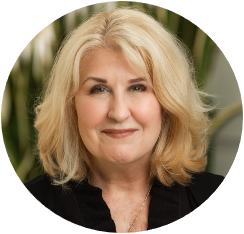A Powerful and Free Tool Designed to Help Companies Gain Deeper Insights Into Their Agricultural Supply Chains
Background
In today’s globalized economy, companies face unprecedented challenges in maintaining transparency throughout their supply chains. This lack of visibility poses obstacles to sustainability performance and regulatory compliance. Many organizations, particularly in the consumer packaged goods (CPG) sector, struggle to identify the precise origins of their sourced commodities, making it nearly impossible to assess the environmental and social impacts of their production processes.
The consequences of this opacity are far-reaching, including difficulty in meeting sustainability goals, increased risk of reputational damage, challenges in complying with evolving regulations, inability to address potential human rights issues, and limited capacity to mitigate environmental impacts.
TSC’s Response: CommodityMap
Recognizing these industry-wide challenges, The Sustainability Consortium (TSC) has been at the forefront of developing solutions for over a decade. TSC’s journey in addressing supply chain transparency began with extensive discussions with CPG companies and other members, revealing a critical gap: many businesses lacked the tools to trace their commodities to their source.
In response, TSC initially created the ‘Commodity Mapping’ program, a manual GIS analysis service offered exclusively to TSC members. Recognizing the potential for broader impact, TSC secured funding from the Walmart Foundation to transform their methodology into a scalable web application.
Everything changed during the pandemic, which forced us to source raw materials from regions with little transparency. We connected with TSC’s Commodity Mapping Team to develop a map for our areas of interest using their CommodityMap tool, and they far outperformed our expectations! – Dee Andrews Director of Legal, Environmental and Corporate Affairs Norcom
The result is CommodityMap, a powerful and free tool designed to help companies gain deeper insights into their agricultural supply chains. Leveraging advanced geospatial analytics and trade network modelling, CommodityMap identifies probable source geographies for opaque supplies and predicts environmental and social priorities in these areas, providing valuable information even with limited data about sourcing regions.
Launched publicly in May 2024, CommodityMap represents a significant leap forward in open access supply chain sustainability tools, making TSC’s expertise accessible to all.
Key Features Addressing Industry Pain Points
CommodityMap offers several crucial benefits, each designed to address specific challenges faced by companies:
- Insight Generation: Provides data-driven insights on environmental and social sustainability issues associated with agricultural sourcing regions.
- Priority Setting: Helps companies prioritize efforts to address environmental and social concerns.
- Action Recommendations: Suggests science-based actions drawn from TSC’s THESIS, offering practical solutions.
- Flexibility: Allows for analysis even with limited information about sourcing regions.
Real-World Impact: Norcom’s Experience
The value of CommodityMap is exemplified by the experience of Norcom, one of the world’s largest manufacturers of school and office products. When the COVID-19 pandemic disrupted global supply chains, Norcom faced unprecedented challenges that tested their supply chain visibility and adaptability.
The pandemic forced Norcom to make significant changes to their sourcing strategy, most notably having to rapidly pivot to integrate sugarcane fiber into their products. This shift introduced new complexities and potential sustainability issues that needed quick understanding.
“Prior to 2020, Norcom’s supply chain had a high degree of visibility,” explains Dee Andrews, Director of Legal, Environmental and Corporate Affairs at Norcom. “Everything changed during the pandemic, which forced us to source raw materials from regions with little transparency. We connected with TSC’s Commodity Mapping Team to develop a map for our areas of interest using their CommodityMap tool, and they far outperformed our expectations!”
Using CommodityMap, Norcom was able to rapidly prioritize issues across different sourcing regions, launched targeted mitigation programs gain comprehensive coverage of multiple risk factors, and inform responses to regulatory questionnaires.
Andrews notes, “When TSC completed the mapping, it was interesting that all of the Aggregate Scores were good. But the tool homed in on individual metrics, and there was usually one metric (biodiversity, child labor, etc.) that was high-risk. This allowed us to quickly determine risks for each region and take appropriate action.”
The case of Norcom illustrates how CommodityMap can be particularly valuable during times of supply chain disruption and rapid change, enabling companies to maintain their commitment to sustainability and transparency even when faced with unforeseen challenges.
The Broader Impact and Future Outlook
The recent launch of CommodityMap in May 2024 marks a significant milestone in addressing supply chain transparency challenges. As more companies discover and adopt this solution, we can anticipate improved industry-wide sustainability performance, more effective responses to evolving regulations, enhanced ability to address social and environmental issues at their source, and increased consumer trust through greater transparency.
By making CommodityMap freely available, TSC aims to democratize access to crucial supply chain insights, enabling companies of all sizes to contribute to a more sustainable and transparent global economy.
Start Using CommodityMap Today
Help support CommodityMap and guide its next round of innovations through sponsorship.

Forrest Follett
Manager | Data Science | The Sustainability Consortium
Forrest Follett began working for TSC in September of 2018 as the Manager of Data Science. His work supports the Commodities Mapping Program, analyzing global sustainability risks as they relate to various commodities and modeling their spatial distributions. Forrest’s background is in Archaeology, where he has several years of experience in the Cultural Resource Management sector and got his BA in 2012. He moved to Fayetteville to pursue his MA and is currently finishing his thesis, titled “An Investigation of the Affordances of Virtual Environments for Archaeological Data Presentation” which uses video games to make more interesting archaeological site reports. The common thread between his work in archaeology and his work for the consortium is his passion for making complex geospatial data into maps and visualizations that are easy to understand and make exploring a dataset simple and engaging.

Dee Andrews
Director | Legal, Environmental and Corporate Affairs | Norcom
Dee Andrews has a broad range of knowledge of sustainability issues as they relate to environmental, social and governance (ESG) matters with a track record of building robust strategies and programs with internal monitoring of key ESG metrics. She excels at navigating highly matrixed and inter-industry environments to partner and influence as needed to deliver on goals. Dee is competent in ESG skills required to lead organizations toward circular economies.

